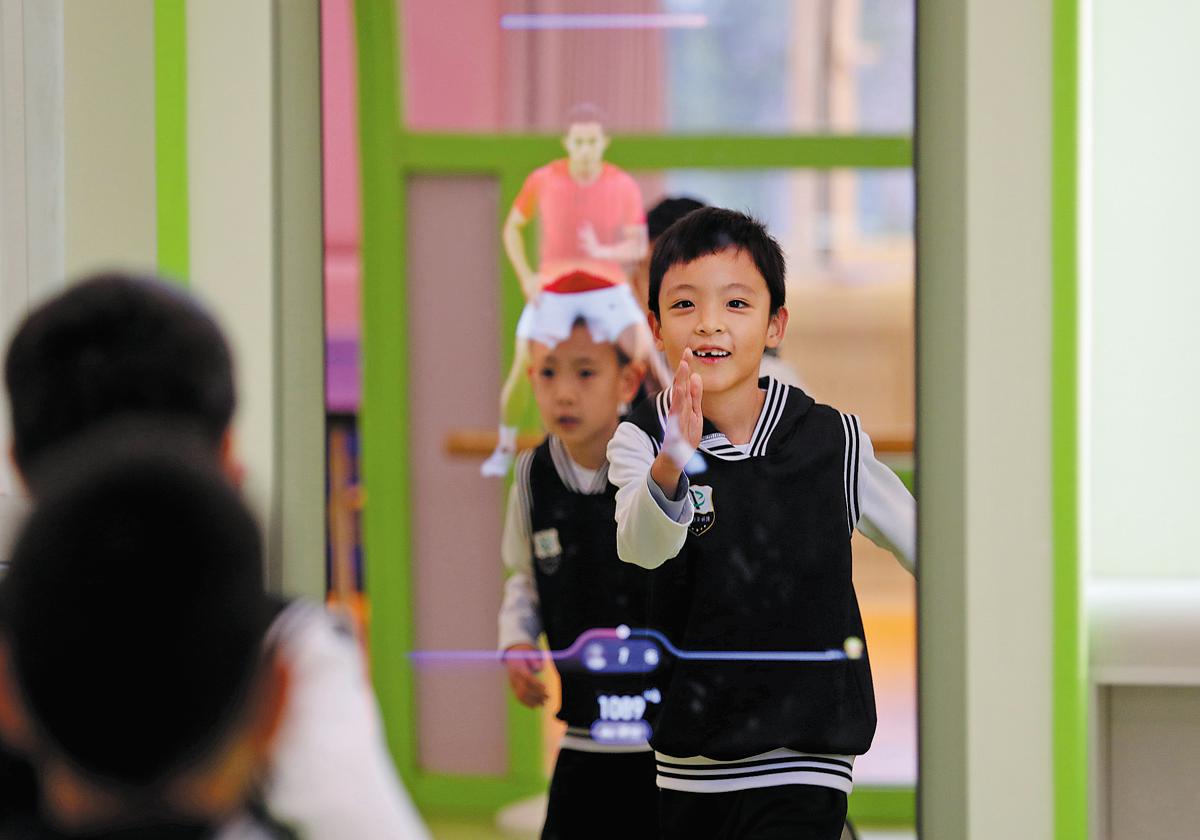

The recent and rapid development of artificial intelligence has already impacted education on all levels in China, from primary and secondary schools to higher education. It has reshaped the sector by facilitating personalized and lifelong learning, more efficient teaching, as well as greater scientific evaluation and school management, experts said.
In December, the Ministry of Education released a guideline calling for increased efforts to strengthen AI education in primary and secondary schools, and stipulated that the technology should be prevalent by 2030.
The guideline aims to cultivate future-oriented talent, enhance students' problem-solving abilities and digital skills, and foster a spirit of innovation. It underscored the need to develop a systematic AI curriculum and implement regular AI education.
Artificial intelligence is making its way into numerous primary and secondary school classrooms, being applied in lesson planning and classroom teaching.
In February, the ministry announced a list of 184 primary and secondary schools selected as AI education bases to facilitate the implementation of AI education.
Understanding the latest technology has become integral in the nation's education system.
Fifth-grade students at a primary school in Shapingba district in Southwest China's Chongqing have designed their own smart creations such as voice-controlled lamps, humidifiers and smart fans, involving programming skills and voice recognition technology.
In a general technology class for first-year students at Yangzhou High School in Jiangsu province, the teacher used the example of identifying cherry blossoms and peach blossoms in spring to compare the differences and similarities between human and machine recognition, helping students understand the principles of machine learning.
An AI class at Changchun Experimental School in Jilin province includes robotics, drone operation and 3D printing. An AI club is also available for students interested in the technology.
Jia Kaichao, secretary of the school's Communist Youth League, said the club lowers the barrier for students to realize their ideas, enabling them to experience the charm of creation.
Students at the school frequently use photo translation apps or voice dictionary pens in their English classes.
"These tools provide quick and convenient answers. For instance, when facing difficult homework questions, we can simply take a picture and get the answer instantly. If we struggle with ideas for writing essays, these AI tools can help generate some creative thoughts," said Luo Jing, a student at the school.